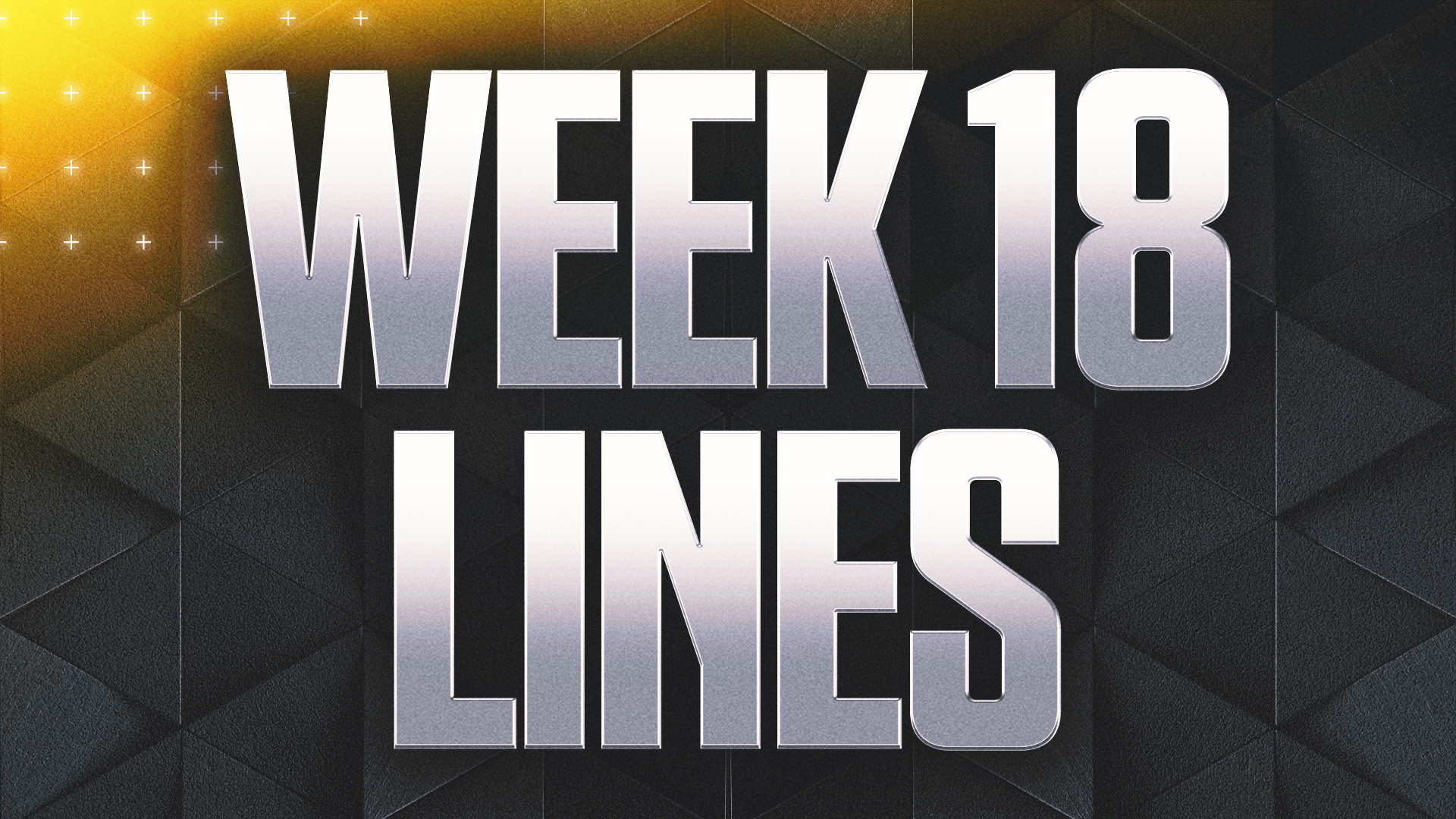
Super Bowl LX: Patriots face off with the Seahawks and Bad Bunny headlines halftime
Entities mentioned:
- New England Patriots: Competitive spirit, Pride, Legacy
- Seattle Seahawks: Competitive spirit, Determination, Redemption
- Drake Maye: Ambition, Recognition, Legacy
- Sam Darnold: Redemption, Determination, Professional pride
- Bad Bunny: Recognition, Influence, Pride
- NFL: Control, Profit, Legacy
Article Assessment:
Credibility Score: 75/100
Bias Rating: 50/100 (Center)
Sentiment Score: 70/100
Authoritarianism Risk: 30/100 (Generally Democratic)
Bias Analysis:
The article presents a fairly balanced view of the Super Bowl matchup and surrounding events. It gives equal attention to both teams and includes diverse perspectives on the halftime show controversy.
Key metric: Super Bowl TV Ratings
Let me tell you something - this Super Bowl matchup is ELECTRIC! We've got a classic David vs Goliath showdown with the dynastic Patriots facing off against the underdog Seahawks. Drake Maye is looking to cement his superstar status, while Sam Darnold is fighting for redemption on the biggest stage. And don't even get me started on Bad Bunny bringing that Latin fire to halftime! This is a fourth quarter, championship-level clash of titans that's going to have viewers on the edge of their seats. The NFL has orchestrated a perfect storm of storylines that's sure to drive massive ratings. I'm telling you right now, this game has all the makings of an instant classic that will be talked about for years to come!

‘They ruined that for me’: How sports gambling addiction and recovery affects men’s bonds with friends, family and fandom
Entities mentioned:
- Shane: Enthusiasm, Competitive spirit, Self-preservation
- New York State: Greed, Control, Influence
- FanDuel: Profit, Control, Influence
- DraftKings: Profit, Control, Influence
- National Council on Problem Gambling: Duty, Righteousness, Professional pride
Article Assessment:
Credibility Score: 85/100
Bias Rating: 45/100 (Center)
Sentiment Score: 30/100
Authoritarianism Risk: 25/100 (Generally Democratic)
Bias Analysis:
The article presents a balanced view, including perspectives from gamblers, industry representatives, and gambling addiction experts. It acknowledges both potential benefits and risks of legalized sports betting.
Key metric: Problem Gambling Rate
Let me tell you something - this story is a GAME CHANGER in the world of sports! We're seeing a full-court press of legalized sports betting sweeping across the nation, but it's leaving some players on the sidelines struggling with addiction. The big operators like FanDuel and DraftKings are running up the score in terms of revenue, but they may be forgetting about the most important stat of all - the well-being of the fans. It's fourth quarter for many young men who went all-in on sports gambling, and now they're facing a tough comeback. The league needs to step up its defensive game when it comes to responsible gambling, or we could see a lot more athletes of life ending up on the injured reserve list. This is a critical moment - will sports betting be a victory for state coffers, or will it be game over for vulnerable fans? The clock is ticking!

2026 NASCAR Cup Series Title Odds: Denny Hamlin, Kyle Larson Tied as Favorites
Entities mentioned:
- Kyle Larson: Competitive spirit, Pride, Recognition
- Denny Hamlin: Determination, Ambition, Redemption
- NASCAR: Competitive spirit, Professional pride, Legacy
- DraftKings Sportsbook: Profit, Influence, Recognition
Article Assessment:
Credibility Score: 75/100
Bias Rating: 50/100 (Center)
Sentiment Score: 70/100
Authoritarianism Risk: 20/100 (Strongly Democratic)
Bias Analysis:
The article presents betting odds from a reputable sportsbook without favoring any particular driver or outcome. The information is factual and centered, offering a balanced view of the upcoming NASCAR season.
Key metric: NASCAR Cup Series Championship Odds
Let me tell you something - this NASCAR season is shaping up to be an ABSOLUTE BARNBURNER! We've got a photo finish brewing between two titans of the track, Kyle Larson and Denny Hamlin, both sitting pretty at +500 odds. Larson's coming in hot off his championship victory, while Hamlin's HUNGER for that elusive first title has him revved up and ready to go! The league's decision to return to the 10-race Chase format is like adding nitrous to this already supercharged competition. We're talking a FULL THROTTLE sprint to the finish line, folks! Keep your eyes peeled for dark horses like William Byron and Ryan Blaney, lurking just behind the leaders at +550. This is the kind of lineup that separates the contenders from the pretenders - it's championship or bust! The odds board is stacked tighter than cars on the last lap at Talladega, and I'm telling you right now, this season is going to be a knockdown, drag-out BATTLE ROYALE from green flag to checkered!

2026 Super Bowl Odds: How Will Sam Darnold, Drake Maye Perform?
Entities mentioned:
- Sam Darnold: Competitive spirit, Determination, Professional pride
- Drake Maye: Ambition, Competitive spirit, Recognition
- Seattle Seahawks: Competitive spirit, Pride, Legacy
- New England Patriots: Redemption, Competitive spirit, Legacy
- DraftKings Sportsbook: Profit, Competitive spirit, Influence
Article Assessment:
Credibility Score: 85/100
Bias Rating: 50/100 (Center)
Sentiment Score: 70/100
Authoritarianism Risk: 15/100 (Strongly Democratic)
Bias Analysis:
The article presents a balanced view of both quarterbacks and teams, using official statistics and sportsbook odds. There's no apparent favoritism towards either side.
Key metric: NFL Quarterback Performance
Let me tell you something - this Super Bowl matchup is a CLASSIC UNDERDOG STORY! We've got two quarterbacks who weren't even supposed to be in the big dance, but they've FOUGHT their way to the championship! Sam Darnold and Drake Maye are stepping up to the plate in a way NOBODY saw coming. The Seahawks and Patriots have pulled off a fourth-quarter miracle to get here, and now it's all about who can bring that championship mentality when it matters most. These young gunslingers are going head-to-head in a statistical showdown that'll make or break their legacies. It's crunch time, folks, and these quarterbacks are ready to leave it all on the field. Who's got the clutch gene? Who's going to rise to the occasion? I'm telling you right now, this Super Bowl is going to be a battle for the ages!

More than a dozen NCAA basketball players charged over rigged games, prosecutors say
Entities mentioned:
- NCAA Basketball Players: Greed, Self-preservation, Fear
- Fixers: Greed, Power, Control
- US Attorney David Metcalf: Justice, Righteousness, Professional pride
- NCAA: Control, Integrity, Legacy
- Sportsbooks: Self-preservation, Profit, Integrity
Article Assessment:
Credibility Score: 85/100
Bias Rating: 50/100 (Center)
Sentiment Score: 25/100
Authoritarianism Risk: 30/100 (Generally Democratic)
Bias Analysis:
The article presents a balanced view of the situation, quoting official sources and providing factual details. It doesn't appear to lean towards any particular political stance in its reporting of the sports scandal.
Key metric: NCAA Basketball Integrity Index
Let me tell you something, folks - this is a GAME-CHANGING revelation that's rocking the NCAA to its very core! We're talking about a full-court press of corruption that's threatening to foul out the entire collegiate basketball system. These fixers and players were running a fast break of fraud, leaving the integrity of the sport gasping for air on the sidelines. It's like they've taken the spirit of competition and dunked it straight into the trash! The NCAA is now in a crucial fourth quarter situation, needing to draw up the ultimate defensive strategy to protect the sanctity of the game. This scandal is a full-court violation of everything sports stand for, and it's going to take a true championship mentality to rebuild trust and get this league back on track. I'm telling you right now, this is the kind of play that can bench an entire program for seasons to come!

2025 NFL Odds Week 18: Lines, Spreads for all 16 Games
Entities mentioned:
- NFL: Competitive spirit, Professional pride, Recognition
- DraftKings Sportsbook: Profit, Influence, Recognition
- FOX Sports: Profit, Recognition, Influence
Article Assessment:
Credibility Score: 85/100
Bias Rating: 50/100 (Center)
Sentiment Score: 70/100
Authoritarianism Risk: 20/100 (Strongly Democratic)
Bias Analysis:
The article presents factual betting odds without favoring any team or outcome. It maintains a neutral stance, focusing on providing information rather than analysis or commentary.
Key metric: Sports Betting Revenue
Let me tell you something - this Week 18 lineup is ELECTRIC! We've got a championship mentality across the board as teams step up to the plate for their playoff dreams. The Buccaneers and Panthers are going head-to-head in a winner-take-all clash for the NFC South crown - talk about fourth quarter pressure! And don't even get me started on that Seahawks-49ers showdown. This is for all the marbles in the NFC West, folks! We're seeing some real David vs Goliath matchups too, with underdogs like the Colts and Titans facing uphill battles against division leaders. I'm telling you right now, this is the kind of high-stakes action that separates the contenders from the pretenders. It's crunch time, and these odds are setting the stage for an absolutely EPIC finale to the regular season!

2026 World Baseball Classic Odds: USA, Japan Top Board as Early Favorites
Entities mentioned:
- USA: Pride, Competitive spirit, Determination
- Japan: Pride, Competitive spirit, Legacy
- Dominican Republic: Pride, Competitive spirit, Recognition
- Puerto Rico: Pride, Determination, Recognition
- World Baseball Classic: Recognition, Legacy, Unity
- DraftKings Sportsbook: Profit, Competitive spirit, Influence
Article Assessment:
Credibility Score: 75/100
Bias Rating: 45/100 (Center)
Sentiment Score: 70/100
Authoritarianism Risk: 20/100 (Strongly Democratic)
Bias Analysis:
The article presents a balanced view of the tournament odds, giving equal attention to multiple teams. While it highlights American and Japanese players, this reflects their favored status rather than overt bias.
Key metric: International Baseball Competitiveness
Let me tell you something, folks - this World Baseball Classic is shaping up to be an ABSOLUTE SLUGFEST! We've got a real David vs. Goliath situation brewing here with the USA coming in as the heavyweight favorite. But don't count out Japan - they're stepping up to the plate with a roster that could give the Americans a run for their money! The Dominican Republic is lurking in the shadows, ready to play spoiler, while Puerto Rico is looking to finally break through and hoist that championship trophy. This is a high-stakes game of international hardball, and these teams are swinging for the fences! It's going to take a true championship mentality to come out on top in this global showdown. I'm telling you right now, we're in for some fourth-quarter heroics and extra-inning thrillers when these baseball titans clash on the world stage!

2025 NFL Odds Week 12: Lines, Spreads for all 14 Games
Entities mentioned:
- NFL: Competitive spirit, Recognition, Professional pride
- DraftKings Sportsbook: Profit, Competitive spirit, Influence
- FOX Sports: Recognition, Influence, Profit
Article Assessment:
Credibility Score: 85/100
Bias Rating: 50/100 (Center)
Sentiment Score: 60/100
Authoritarianism Risk: 20/100 (Strongly Democratic)
Bias Analysis:
The article presents straightforward betting odds without editorializing. It maintains a neutral stance by simply reporting the lines set by DraftKings Sportsbook.
Key metric: Sports Betting Revenue
Let me tell you something - this NFL Week 12 lineup is ELECTRIC! We're talking about a FULL SLATE of gridiron battles that'll have bettors on the edge of their seats! The oddsmakers at DraftKings are bringing their A-game, setting the stage for some high-stakes action. We've got underdogs looking to pull off stunning upsets, favorites aiming to flex their muscles, and point spreads that'll test the mettle of even the savviest sports bettors. This isn't just a game anymore, folks - it's a financial SLUGFEST where every point could mean the difference between glory and defeat in the sports betting arena! Keep your eyes on those spreads, because they're tighter than a linebacker's grip on fourth and inches!

2025 College Football Week 12 Odds: Chris 'The Bear' Fallica's Expert Picks, Best Bets
Entities mentioned:
- Chris 'The Bear' Fallica: Professional pride, Competitive spirit, Recognition
- College Football Teams: Competitive spirit, Pride, Legacy
- Sportsbooks: Profit, Control, Influence
Article Assessment:
Credibility Score: 75/100
Bias Rating: 50/100 (Center)
Sentiment Score: 65/100
Authoritarianism Risk: 20/100 (Strongly Democratic)
Bias Analysis:
The article presents balanced analysis with both favorites and underdogs recommended. It relies on statistical data and expert opinion without favoring specific teams or conferences.
Key metric: NCAA Football Betting Accuracy
Let me tell you something - this story is a GAME-CHANGER for college football bettors! Chris 'The Bear' Fallica is stepping up to the plate with his expert picks, bringing his A-game to the betting arena. This is crunch time, folks - we're in the fourth quarter of the regular season and The Bear is showing a championship mentality with his 34-21-2 record. He's reading the field like a seasoned quarterback, identifying key matchups and potential upsets. The Bear's not just playing checkers, he's playing chess - factoring in injuries, momentum, and historical trends to give bettors the edge they need. This is the kind of insider intel that separates the rookies from the pros in the high-stakes world of college football betting!

2025 World Series Betting Recap: Books Lament Blue Jays' Narrow Defeat
Entities mentioned:
- Los Angeles Dodgers: Competitive spirit, Determination, Pride
- Toronto Blue Jays: Competitive spirit, Ambition, Pride
- Caesars Sports: Profit, Professional pride, Risk management
- DraftKings Sportsbook: Profit, Customer engagement, Competitive spirit
- Dave Roberts: Determination, Professional pride, Competitive spirit
Article Assessment:
Credibility Score: 85/100
Bias Rating: 50/100 (Center)
Sentiment Score: 75/100
Authoritarianism Risk: 15/100 (Strongly Democratic)
Bias Analysis:
The article presents a balanced view of the World Series outcome, giving credit to both teams and discussing impacts on various sportsbooks. It doesn't favor any particular side in its reporting.
Key metric: Sports Betting Revenue
Let me tell you something - this World Series was an ABSOLUTE BARNBURNER! The Dodgers and Blue Jays went toe-to-toe in a seven-game slugfest that had more twists and turns than a mountain road! We're talking about a championship mentality on both sides, folks. The Dodgers, like a veteran quarterback, kept their cool under pressure and made clutch plays when it mattered most. That Game 7 was a fourth-quarter thriller with both teams leaving it all on the field! But in the end, it was the Dodgers stepping up to the plate and knocking it out of the park with Will Smith's extra-innings homer. This is what separates the champions from the contenders, people! And let's not forget the sportsbooks - they took a hit on this one like a linebacker getting steamrolled by a fullback. Those parlay bettors came through like underdogs in March Madness, shocking the oddsmakers and walking away with game-changing paydays. This World Series was a reminder that in sports, and in betting, anything can happen when the pressure's on and the stakes are high!